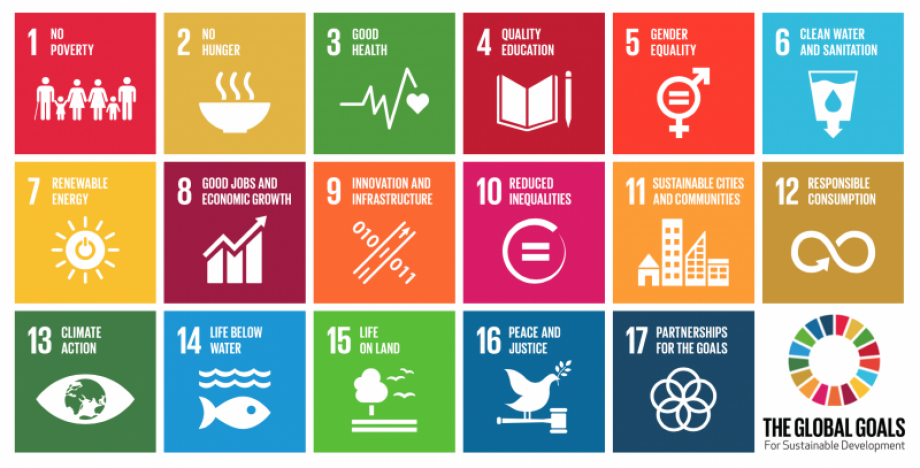
The 2030 Agenda for Sustainable Development
This Agenda is a plan of action for people, planet and prosperity. It also seeks to strengthen universal peace in larger freedom. We recognise that eradicating poverty in all its forms and dimensions, including extreme poverty, is the greatest global challenge and an indispensable requirement for sustainable development.
Videos
Wasser
Am 1. Januar 2013 startete das internationale UN-Jahr zur Zusammenarbeit im Bereich Wasser. Der Zugang zu sauberem Wasser ist ein Menschenrecht, die Halbierung der Menschen ohne Zugang zu sauberem Trinkwasser eines der Milleniumsziele. Diese Wertschätzung in internationalen Abkommen hat Gründe. Der Wassersektor ist ausschlaggebend für eine ganze Reihe lebens- und entwicklungswichtiger Bereiche: Zum Beispiel den Landwirtschafts-, den Gesundheits- und manchmal sogar den Sicherheitssektor.
Download Script (PDF)
Quelle & Lizenz CC-BY-SA http://edeos.org
Water and Development
This high appreciation in international agreements has a reasons. Water is crucial for the development in many different sectors:
For example, the agriculture sector, the health sector and sometimes even the security sector. How exactly do these relationships work and what are the main problems in the water sector?
Download Script (PDF)
Source & Licence CC-BY-SA http://edeos.org
Gesundheit
Ebola, Malaria, Tuberkulose und AIDS. Infektionskrankheiten sind in vielen Ländern immer noch eine tödliche Gefahr für die Bevölkerung und ein großes Entwicklungshindernis.
Download Script (PDF)
Quelle & Lizenz CC-BY-SA http://edeos.org
Welternährung
Weltweit leiden heute 850 Millionen Menschen unter Hunger. Gleichzeitig werden 1,3 Milliarden Tonnen Lebensmittel jährlich verschwendet. Wie passt das zusammen? Nach den weltweiten Hungerunruhen 2007 und 2008 ist das globale Welternährungssytem wieder in den Fokus der Internationalen Gemeinschaft gerückt. Obwohl weltweit genug Nahrungsmittel produziert werden um die Weltbevölkerung satt zu bekommen hat jeder achte Mensch zu wenig zu essen. Aber wie genau funktioniert dieses System? Wo liegen die Probleme? Und was muss getan werden?
Download Script (PDF)
Quelle & Lizenz CC-BY-SA http://edeos.org
Migration
Die Debatte um das Thema Migration kocht in regelmäßigen Abständen hoch. Die Auseinandersetzungen um Themen wie Kopftuch, Integration, Zwangsehen, Ehrenmorde, Ausländerkriminalität oder Überfremdung werden mit Teils hysterischem Unterton und selten sachlich geführt.
Unterrichtsmaterial
Download Script (PDF)
Quelle & Lizenz CC-BY-SA http://edeos.org
International Migration
Almost everywhere on the world, international migration is a hot topic. Most of the time the debate about migration is fierce and charged with prejudices and fears.
Download Script (PDF)
Source & Licence CC-BY-SA http://edeos.org
Articles

Beyond the Millennium Development Goals
By Prof. David Satterthwaite (International Institute for Environment and Development)How can we ensure the targets that replace the Millennium Development Goals lead to a future that low-income groups want? David Satterthwaite outlines five points to consider.
more[...] ![]()
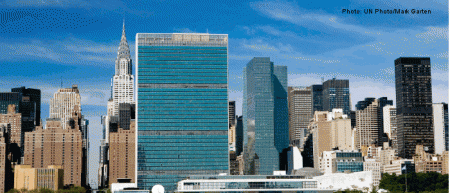
Corporate Responsibilities in the Context of the Post-2015 Sustainable Development Agenda
By Prof. Dr. Klaus LeisingerExtreme poverty, poor health, inadequate nutrition, and other forms of human deprivation are widespread and reduce development opportunities of the generation living today. One result is increased internal as well as international migration – depriving rural areas and poor countries of the most valuable development resource: the initiative and skills of young people. Even in rich countries, income and wealth disparities are widening, and high unemployment – particularly among young people – is becoming endemic. The world population will grow from today’s 7.2 billion people to more than 9 billion by the year 2050. more[...]
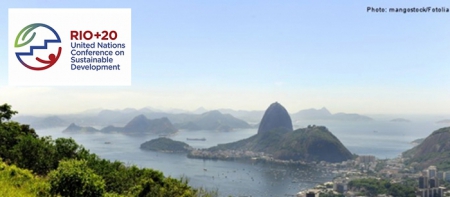
Rio+20 Summit
At the Rio+20 Conference, world leaders, along with thousands of participants from governments, the private sector, NGOs and other groups, will come together to shape how we can reduce poverty, advance social equity and ensure environmental protection on an ever more crowded planet to get to the future we want. more[...]
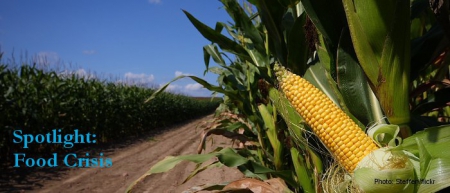
Spotlight Food Crisis
By Editorial TeamThe recent drought in the United States and its impact on maize prices has focused the world's attention back onto global food prices. The latest data from the UN Food and Agriculture Organization shows that prices are in fact up a little after a period of decline. High food prices not only put a strain on the already tight food budgets of the world’s poor, but raise the price of helping them with food aid. more[...]
Opinion
-
A Big Data Revolution for Sustainable Development
Robert Kirkpatrick, UN Global PulseThe UN Secretary-General Ban Ki-moon’s High Level Panel has called for a “data revolution” for sustainable development; such a revolution has already arrived in the private sector. But forward-thinking companies can now lead a revolution in corporate social responsibility (CSR) to help us address some of the world’s most pressing issues. more[...]
The Author
-
The real issue is universal access to affordable basic services
Diana Mitlin, International Institute for Environment and DevelopmentAs global institutions and official development assistance agencies reflect on what should follow the Millennium Development Goals (MDGs), this is an opportunity to recognise their critical flaw — global leaders have endorsed partial MDG targets. more[...]
 The Author
The Author
-
MDGs: Some targets met, but much remains to be done
The 2012 Millennium Development Goals report, published last week, highlights the progress made towards some of these development targets. However, the UN experts pointed out a number of areas that must be addressed urgently, asking world governments to strengthen their efforts to achieve the MDGs while also ensuring that the post-2015 development agenda will be based on human rights obligations. more[...]
The Author
Backround: From MDG to SDG
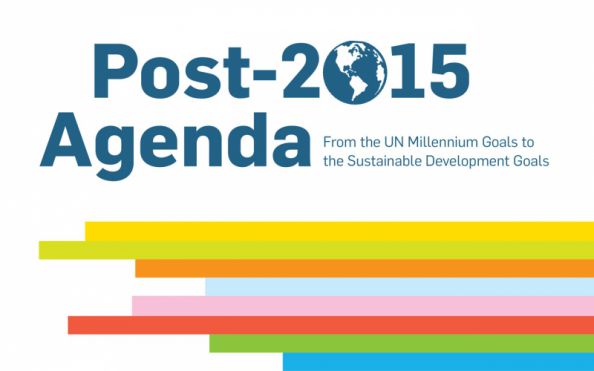
"Three out of the eight millennium development targets – on poverty, slums and water – have been met ahead of the 2015 deadline, but much remains to be done. The future development framework – the Post-2015 agenda – should build on the lessons learned from working toward achieving the MDGs, which have been providing the structure for the UN’s development activities since the Millennium Summit in 2000.
In May 2013, the High Level Panel released its report, “A New Global Partnership: Eradicate Poverty and Transform Economies through Sustainable Development,” which sets out a universal agenda to eradicate extreme poverty from the face of the earth by 2030, and deliver on the promise of sustainable development.
The UN Secretary-General presented his report on the MDGs and post-2015 agenda, “A life of dignity for all: accelerating progress towards the Millennium Development Goals and advancing the United Nations development agenda beyond 2015”, to Member States during the General Assembly in September 2013.
While the national and thematic consultations focused on the potential issues and areas to be included in a new development agenda, the so-called ‘means of implementation’ have surfaced throughout the process and are becoming increasingly central to the debate going forward.
The UN development system has therefore created space in the form of six Dialogues so that interested groups and individuals can contribute ideas and proposals for the implementation of the post-2015 agenda in their countries and at the global level."
Source: UNDP
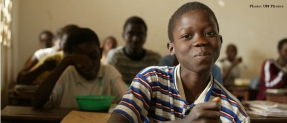
MDGs and SDGs: Are the Concepts Compatible?
By Dr. Markus Loewe (German Development Institute)For the last 20 years, the international development debate has been dominated by two trends that seem, at first, to be heading in a similar direction. However, under closer scrutiny, they differ with respect to their focus and underlying philosophies. On the one hand, there is the agenda of reducing poverty in developing countries in its various dimensions, which found its expression in the Millennium Development Goals (MDGs). On the other hand, there is the idea of sustainability that became popular at the Earth Summit in Rio de Janeiro in 1992 and that, at the Rio+20 summit in 2012, generated a parallel concept to the MDGs: the so-called Sustainable Development Goals (SDGs). more[...]
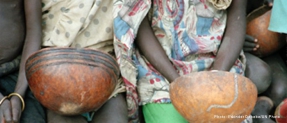
3 Imperatives for the Next Global Development Agenda
By World Resources Institute (WRI)Can extreme poverty be eliminated in the next 20 years? With much of the world still mired in an economic slump, the question might seem ill-timed. Yet, as heads of state arrive in New York on Monday for the 67th United Nations General Assembly, this goal should be at the top of the agenda.
more[...] ![]()
The MDGs at a Glance
By Editorial TeamIn the year 2000 the United Nations introduced the Millennium Development Goals. Main targets are the reduction of extreme poverty and a global partnership for development. At the UN Millennium Summit in New York stakeholders from the international politics, civil society and global NGOs promised to achieve all these targets till 2015. The eight goals are: Eradicate extreme poverty & hunger, achieve universal primary education, promote gender equality and empower women, reduce child mortality, improve maternal health, combat HIV/Aids, Malaria and other diseases, ensure environmental sustainability and develop a global partnership for development.
more[...] ![]()
Opinion
-
The Times they are A-Changing
Anders Dahlbeck, ActionAidIn 2008, ActionAid started campaigning to remove biofuels targets that are having a detrimental effect on poor and marginalised communities around the world. We did so in response to calls from communities and partners we work with in the global south, for whom the impact of biofuels production was becoming untenable. Countless cases of land grabs by multinationals to produce industrial biofuels for export to rich countries were the main issue. more[...]
 The Author
The Author
-
South-South Exchange of Know-How is Essential for Africa’s Economic Future, Says AfDB President
African Development Bank (AfDB)South-South investment and exchange of know-how are key sources of growth and prosperity in Africa – and Huajian Group of China’s experience in Ethiopia is really edifying. That was the message the President of the African Development Bank Group, Donald Kaberuka, gave in his address at the opening of a high-level seminar on September 7 in Tunis. more[...]
 The Author
The Author
-
Food Security for Africa: an urgent global Challenge
Albert Sasson, European CommissionOn September 14, 2010, the Food and Agriculture Organization of the United Nations (FAO) published its estimates concerning the number of people suffering from hunger in 2010: 925 million. This figure was below the 1,020 billion in 2009, but it was higher than the number reached before the 2008 global food crisis. The 2010 figure corresponded to 13.5% of the world population, while the 2015 objective (millennium development goal (MDG) number 1) was 8%. The FAO concluded that we were still far from achieving MDG 1, that is, halving the number of hungry people worldwide by 2015. more[...]
 The Author
The Author
-
Global Food Price Volatility and Spikes: An Overview of Costs, Causes, and Solutions
Prof. Joachim von Braun, Center for Development ResearchSince the 2007-08 food crisis, many thoughtful analyses have addressed the causes and impacts of high and volatile international food prices and proposed solutions to the crisis. These studies have covered global as well as local food price dynamics and policy reactions. The food price problem is, however, far-reaching, and its impacts are wide and interrelated. more[...]
 The Author
The Author
Resources

The SDG Compass
Guides companies on how they can align their strategies as well as measure and manage their contribution to the realization of the SDGs. The SDG Compass presents five steps that assist companies in maximizing their contribution to the SDGs: understanding the SDGs, defining priorities, goal setting, integrating sustainability and reporting.
Download
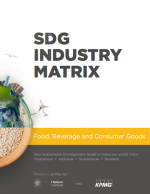
SDG Industry Matrix
Showcases industry-specific examples and ideas for corporate action related to the SDGs. Presented in a series of publications, each matrix highlights bold pursuits and decisions made by diverse companies for each SDG.
About Us // Privacy Policy // Copyright Information // Legal Disclaimer // Contact
Copyright © 2012-2018 macondo publishing GmbH. All rights reserved.
The CSR Academy is an independent learning platform of the macondo publishing group.







